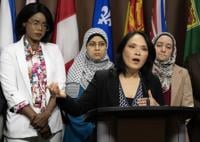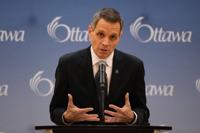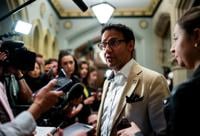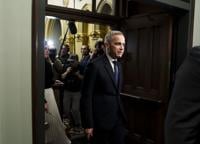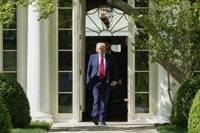TORONTO - The ºÚÁϳԹÏÍø Federation of Independent Business says it looks forward to working with the new Liberal government and opposition to help deal with the tariff battle with the United States and China.
CFIB president Dan Kelly said it was good to hear both Prime Minister Mark Carney and Conservative Leader Pierre Poilievre pledging to work together to address the threat of U.S. tariffs in a minority Parliament.Â
Kelly said small business confidence is near record lows and the CFIB is forecasting an extremely difficult second quarter for the ºÚÁϳԹÏÍø economy.
"Now that we have a degree of political clarity, government needs to turn its attention to reducing taxes, cutting red tape and providing much-needed economic certainty," Kelly said in a news release Tuesday.
"We urgently need measures that would incentivize investment and help small businesses diversify their markets and suppliers."
Kelly said such measures should include directing money collected through counter-tariffs to small businesses, formally eliminating the consumer carbon tax via legislation and removing internal trade barriers across the provinces.
The Liberals were leading or elected in 168 seats when the counting was paused early Tuesday morning, four short of a majority.Â
U.S. President Donald Trump loomed large over the campaign with his tariff threats and calls for Canada to become a U.S. state.
Carney is expected to meet with Trump soon with plans to begin talks on a new trade and security pact quickly.
CIBC chief economist Avery Shenfeld said in a post-election note that budget deficits "look likely to head higher in the near term," adding that is typical when Canada experiences an economic shock and governments lean on fiscal stimulus.
"Deficits are likely to somewhat exceed what the Liberals suggested during the campaign, while still tracking miles below U.S. federal deficits as a share of GDP," he said.
Shenfeld said higher deficits could be in the cards in light of a minority Parliament looking likely, as votes continue being tallied.
"Gaining support in Parliament from either the NDP or the Bloc could mean allocating additional funds towards those parties' priorities, including health care for the NDP, and items of importance for the Bloc (health care, other transfers, support for the metals sector)," he said.
"Some of that might be funded by delaying some of the Liberal's own initiatives rather than by running an even larger deficit."
Shenfeld said Liberal campaign promises that could affect the fiscal balance include dropping the consumer carbon tax while retaining a reformed version for large industrial emitters, eliminating GST on homes under $1 million for first-time purchasers, and cutting the tax rate by one percentage point for those in the lowest federal income tax bracket.
This report by ºÚÁϳԹÏÍø was first published April 29, 2025.




